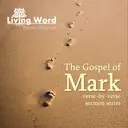00:00
00:01
True or False Witness?
Series Mark
45 ( 30 | 15 )
Key Phrase
False Witness
Question
Who are the true and false witnesses in this account?
Main Points
- True disciples sin.
- True disciples repent.
| Sermon ID | 1029232149117854 |
| Duration | 44:14 |
| Date | Oct 29, 2023 |
| Category | Sunday Service |
| Bible Text | Mark 14:53-72 |
Add a Comment


